

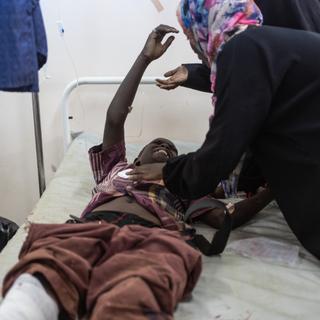
In Sudan, Al-Naw hospital is on the front line of the civil war
Feature'In Sudan, a total war' (6/8). Ravaged by conflict since April 2023, only 20% to 30% of the country's hospitals are operational. Al-Naw Hospital, on the outskirts of Khartoum, the remaining caregivers are doing their utmost to treat the countless civilian casualties.
The sun rose above the perimeter wall and flooded the hospital courtyard. Its rays awakened the families sleeping at the foot of the building, on the walkways or under the trees, stretched out on carpets or on the ground. The tranquility of sleep gave way to apprehension, which gradually overtook their faces. Everyone was waiting for a loved one to be cared for inside.
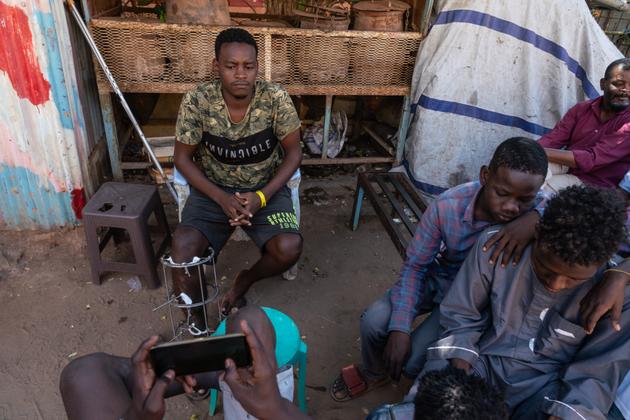
At around 8:30 am, explosions rang out in the distance. The detonations interrupted a baby's cries. For the adults, gunfire has become part of their daily routine. Every morning, war rumbles on in the capital of Sudan after a night-time lull. In front of the emergency room, wheelchairs came and went, old people hobbled on crutches, and nurses hurried by with blood bags.
Al-Naw University Hospital is one of the few remaining public facilities in Omdurman, the city that borders Khartoum to the northwest of the Nile. Two stories high and with a capacity of around 200 beds, it is far from being a first-rate hospital. However, it has been on the front line since the start of the war on April 15, 2023, between the Sudanese Armed Forces (SAF) – the regular army – and the Rapid Support Forces (RSF) militia.
Within minutes, everything accelerated. A clamor announced the arrival of the wounded. It didn't take long for the artillery fire heard earlier to take its toll. Two wounded – a child and an elderly woman – and a man's deceased body were brought to the hospital gates in a tuk-tuk. The shell had fallen on a dirt field in the Thawra 38 district, a stone's throw from the hospital.
A healthcare system on its knees
The 13-year-old was hoisted onto a stretcher, his right leg almost severed at the tibia. Despite the profuse spurting of blood, Hamid remained conscious and calm. The morphine was certainly helping. He was playing football when a rocket hit near the corner post. Next to him, the elderly woman's eyes rolled back in her head as the doctors disinfected her gaping wounds. Her right shoulder was shredded by the explosion.
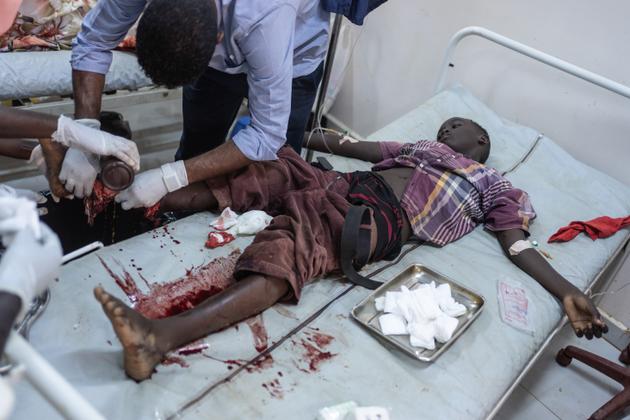
The grandmother said nothing, using all her energy to stay alive. All around her, it was a scrum. More than 50 people were crowding into the emergency room, white coats, relatives, threading their way with difficulty from one patient to the next. "Every day we receive serious injuries, children, women, the elderly, due to the indiscriminate bombing of civilians. This morning, it's almost calm," confided Doctor Saddiq Al-Tayyeb, who had just put young Hamid on a drip. The boy needed emergency surgery. "But he'll have to wait. At the moment, we don't have the staff for orthopedic and vascular surgery," he lamented.
Eighteen months of war in Sudan have brought the healthcare system to its knees. Only 20% to 30% of the country's hospital structures are operational. More than 80 facilities have been targeted, bombed or assaulted by soldiers. Dozens more have been looted. The Al-Naw Hospital was hit several times by artillery fire and drone attacks. A total of 56 doctors have been killed in Khartoum alone since the start of the fighting, according to the Ministry of Health. Some were abducted by the RSF to treat their soldiers on the other side of the front line.
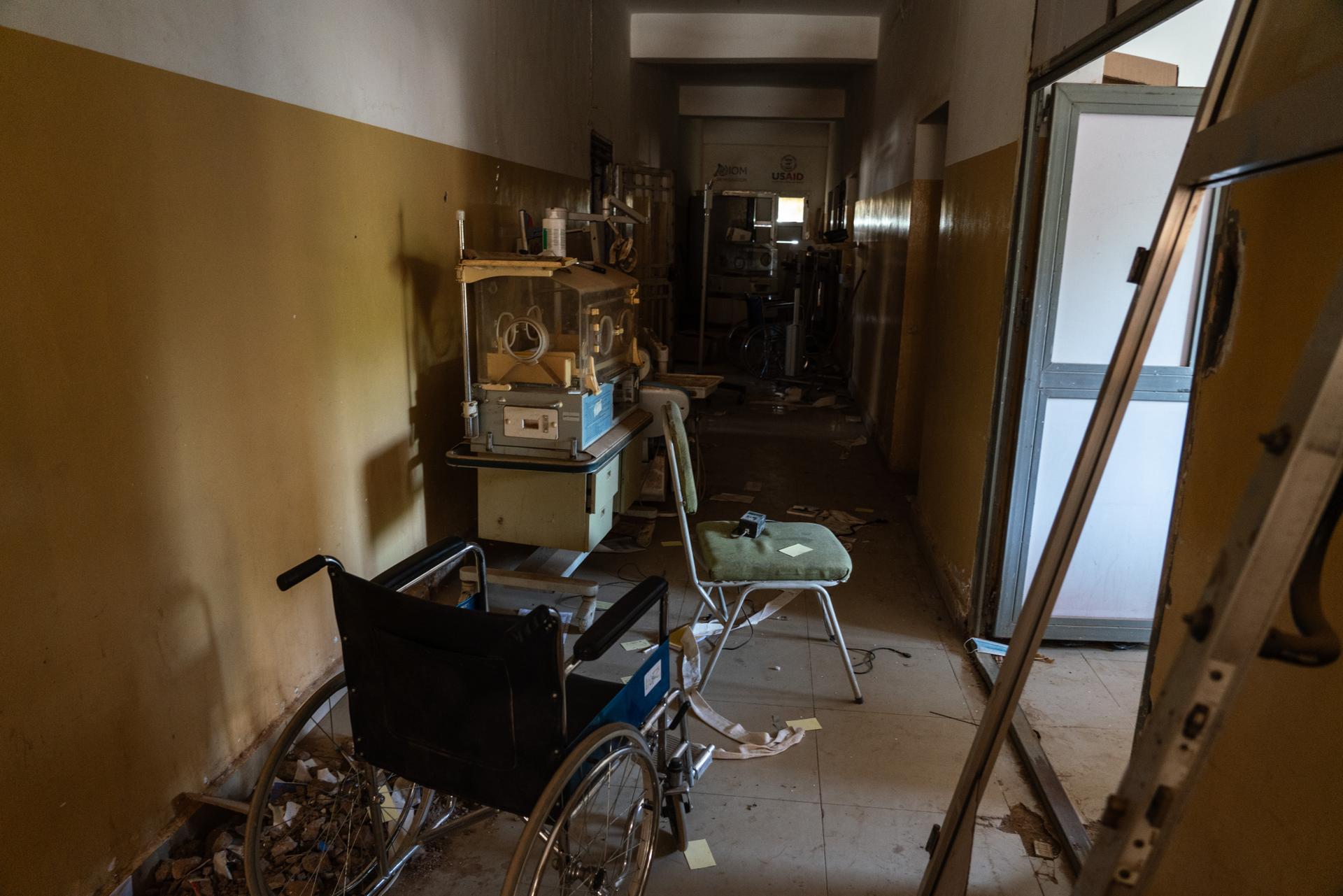
Tens of thousands of medical personnel have been displaced by the fighting or have taken refuge in neighboring countries, a dramatic hemorrhage for a sector already in its death throes. Within the first weeks of the war, Dr. Al-Tayyeb had left the capital for Wad Madani, in the state of Gezira, 190 kilometers to the southeast. Eight months later, when the RSF had taken over the region, he fled to areas held by the regular army. "It was impossible to work in those conditions. Wherever they go, the militia brings death," he said.
Humanitarian aid trickles in
A howl ripped through the hubbub. The family of the deceased had arrived. Their outcries shattered eardrums. By the time his next of kin had been contacted, the body of Abubakar Jaber, a 45-year-old electrician, had been placed on a stretcher at the back of the room. "What will become of my two children? God help me," cried his widow, Malak, as she collapsed.
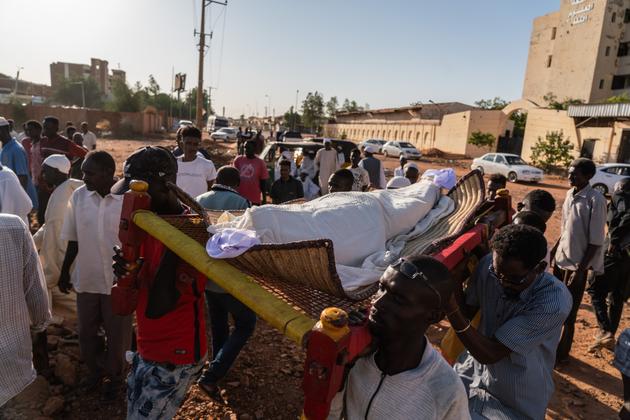
Outside, the queue grew longer in front of the hospital pharmacy. Once or twice a week, volunteers organize free medicine distributions. Dozens of hands waved crumpled prescriptions at the gate. At a time when millions of Sudanese have lost their jobs, access to healthcare is a battle.
Across the country, many areas rendered inaccessible by fighting and armed groups are no longer supplied with medicines. In Omdurman, in the districts reclaimed by the army, the situation is improving slightly. Humanitarian aid is arriving in dribs and drabs, often hampered by bureaucracy and corrupt administration, but it is not crossing the front lines.
The war destroyed the main drug production plants, concentrated in the capital. From neighboring Egypt, tons of medicines are imported, sometimes illegally, feeding the black market. "In the pharmacies, prices are going up every day. We have to come here," explained Najat Adam, who has diabetes, asthma and thyroid problems.
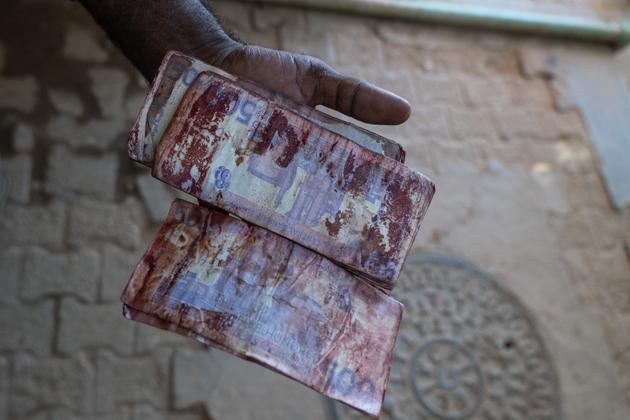
Since the banks have gradually reopened their doors, civil servants have been able to withdraw their salaries and pensioners their pensions. But the sums are derisory. "All my money goes on my rent," lamented the mother in her fifties, who had to leave her home in Abu Rof, a district of Omdurman that has been devastated by the fighting. "For the rest, we depend on our children, whom we have sent to Egypt." From neighboring countries, where over 3 million Sudanese have found refuge, the diaspora is helping as best it can.
In particular, it finances the citizen self-help networks that have sprung up. Faced with the collapse of the health sector, the Sudanese are largely dependent on these hundreds of "emergency rooms" set up in the major cities. These initiatives bring together volunteers, political activists, doctors and social workers, often from resistance committees and neighborhood organizations that played a pivotal role in the pacifist revolution against Omar al-Bashir's regime in 2019, then against the coup two years later by generals Bourhane and "Hemedti," who are now clashing.
'We learned everything on the job'
At Al-Naw Hospital, the Karari district's "emergency room" organizes the distribution of medicines by collecting donations. In the early hours of the war, on April 15, 2023, a dozen of its members forced open the sealed door of the hospital building. As the fighting paralyzed the city's public services, the group set up a makeshift clinic there. "We'd pick up doctor friends at their homes, then take them to hospital safely. Then we would evacuate the wounded from the battlefield," recalled Mohammed Motaman, one of the volunteers.
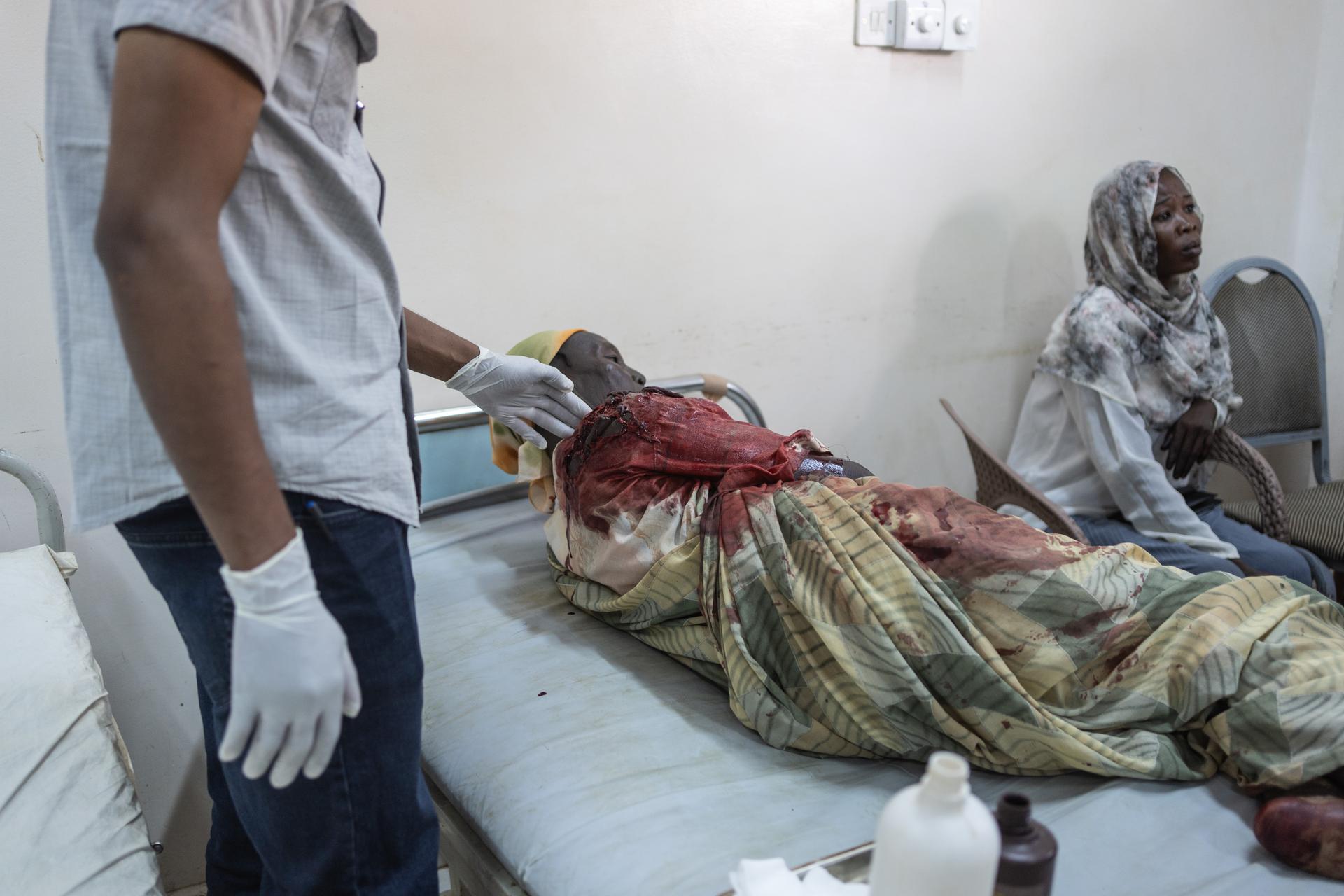
At the time, the building was located in a disputed area. Inside, caretakers received waves of wounded civilians and treated members of both the RSF and the regular army. "We cleaned wounds, dressed wounds and even took part in operations. We had no experience. We learned everything on the job with the war," recounted the former activist of the peaceful revolution of 2019.
On the initiative of the local "emergency room," Al-Naw Hospital requisitioned an adjoining building as a morgue for the "unknown dead." In the cold room, inert bodies lay under blankets. The latest to arrive is a teenager killed in a bombardment to the east of the city. Outside, a man in a blood-stained, white jellabiya (a loose-fitting, traditional garment from the Nile Valley), with a bandage around his head, knocked on the door. He burst into tears when he recognized his nephew.
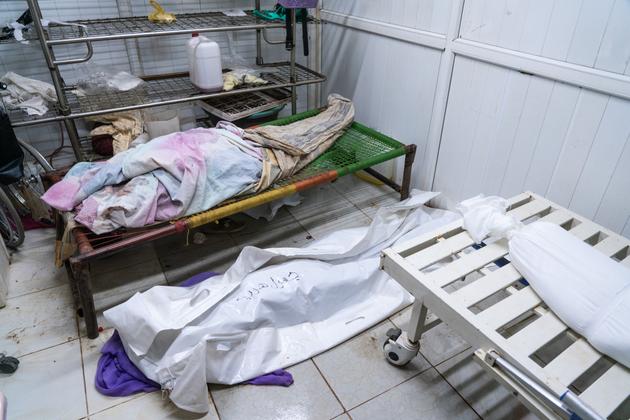
In one week, the hospital received nearly 60 unknown corpses, most of them killed by shells, according to one of the volunteers who runs this gloomy facility. For each corpse, a bone sample is taken in the hope of identifying it. However, the only laboratory that can analyze the samples is located in areas controlled by the RSF. "We'll have to wait until Khartoum is liberated before we can continue our work," said forensic pathologist Hisham El-Abdeen. After 48 hours, if no one has come to collect them, the bodies are photographed and sent to the cemetery. A number will be inscribed on their grave.
At around 1 pm, artillery fire seemed to get closer. Several shells had fallen on Al-Wadi Street, a few kilometers north of the hospital. At the same time, a wounded soldier disembarked. He was taking part in the army offensive in the Ombada district, west of the capital. Shot by a sniper in the right kidney, he was admitted to a separate section. Both civilians and soldiers are treated at Al-Naw Hospital.
In a recovery room, another soldier woke up with a bruised body. He was released a few weeks ago for health reasons after being held for a year and a half by the RSF. A survivor of the Soba prison, he recounted the torture and despair in the cells where many prisoners died of hunger. "The RSF have nothing left to lose. Their soldiers are out of control. They don't respect any rules," lamented the 30-year veteran of the regular army.
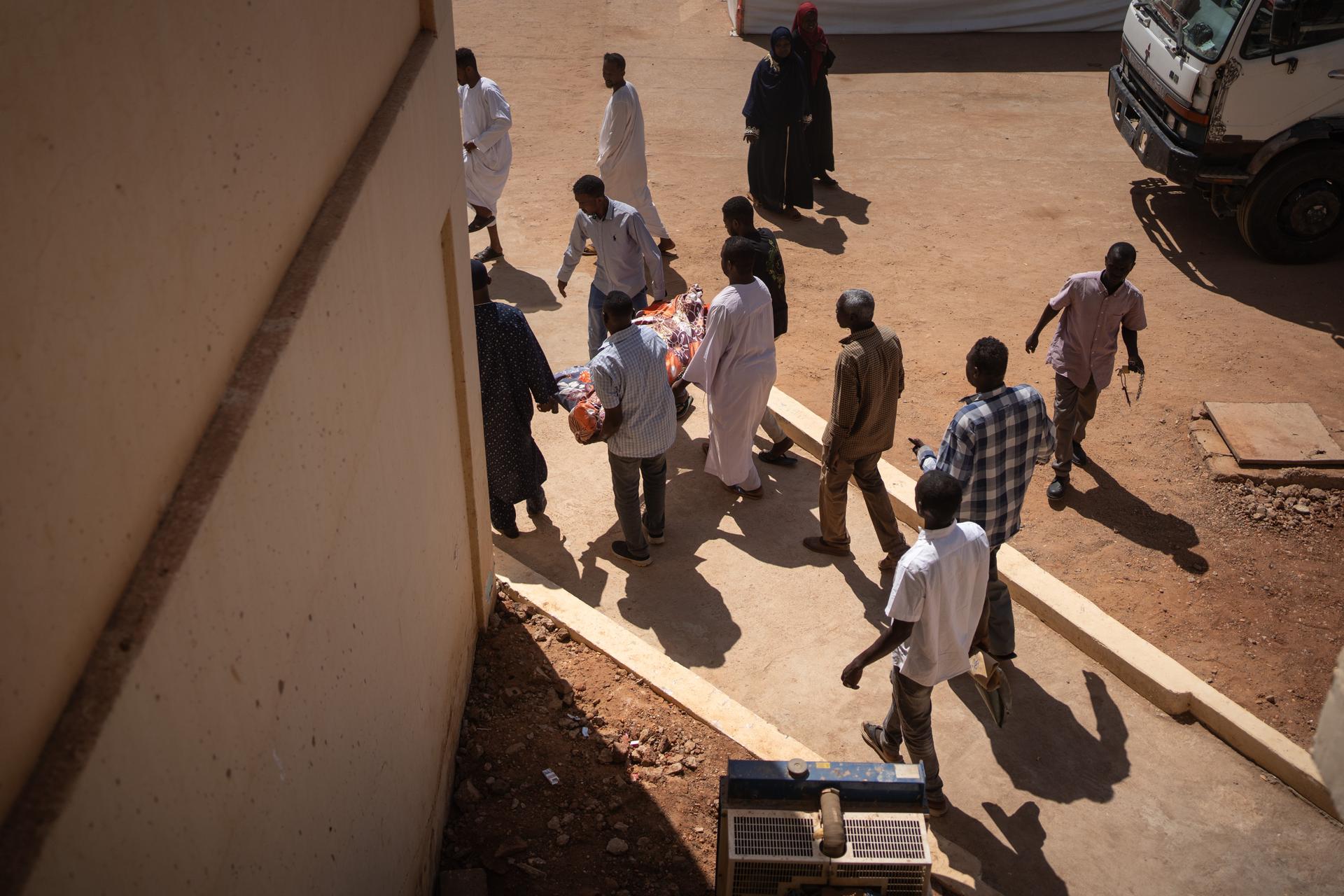
On the first day of the war, the warrant officer, who requested anonymity, was shot and wounded on the outskirts of SAF headquarters, then taken prisoner by paramilitaries. "We were caught off guard. The army wasn't ready, it had no plan," he asserted, accusing the RSF of starting the battle. To date, there is no evidence to show who fired first.
'It's an absurd war'
"Ultimately, we're all Sudanese. The RSF was born out of the army. Most of their officers came from the SAF staff, who were poached. Today, you can have one brother in the army and another in the RSF. We can't accept killing each other like this. It's an absurd war," he said. These are rare words for a soldier, which could lead to his dismissal or even arrest.
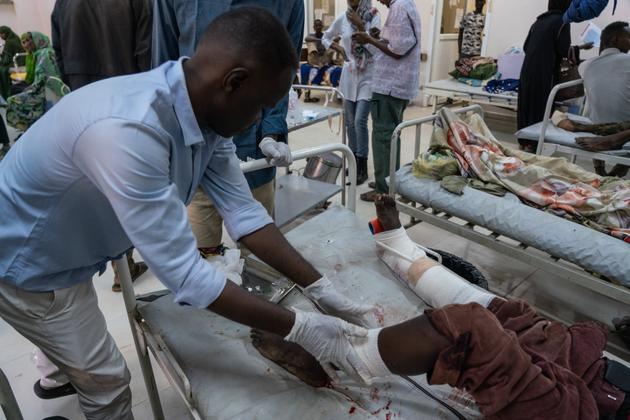
In the meantime, the hospital emergency room had filled up. The wounded crowded together on the same bed. Under a mosquito net, a burn victim stared up at the ceiling, his arms held aloft by bits of string. With his face covered in purulent patches, he could not be operated on for lack of a specialist. Beside him, little Hamid was at the end of his tether, his leg wrapped in bandages and turning a strangely pale, slightly bluish color.
His sisters and parents stood at his bedside. They wrung their hands and exchanged helpless glances. Two months earlier, the family had fled the RSF-controlled Ombada district. "It was a nightmare. The militiamen took everything from us. Our possessions and our pride. All I have left are the clothes I'm wearing. And now they want to take my son away from me?" shouted the father, Mohammed Al-Nazir. By nightfall, the surgeon had still not come. He was not going to. On that day, he had buried his mother. As for Hamid, he hoped to avoid amputation.
